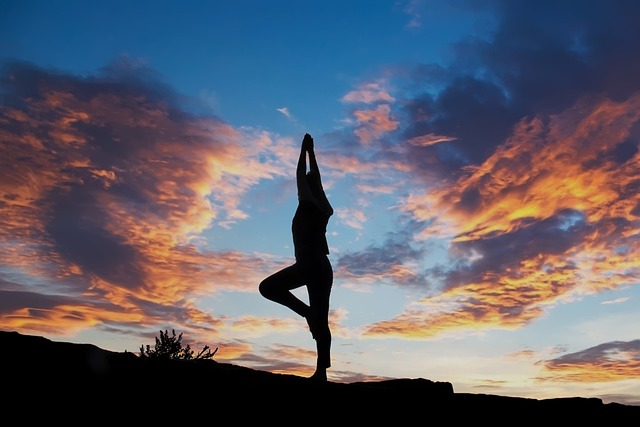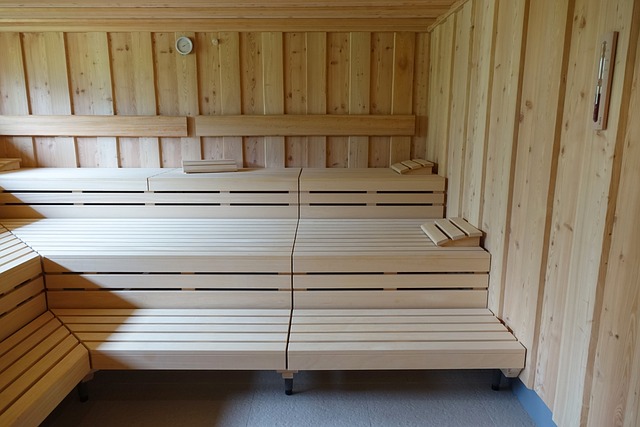Meditation retreats offer a peaceful escape from daily life, providing serene settings and guided practices for stress reduction, mental clarity, and emotional well-being. Through these retreats, participants learn mindfulness techniques like body scan meditations in tranquil locations, enhancing focus and relaxation skills. By transforming retreat experiences into daily routines, individuals can sustain improved mental health, making mindfulness a lasting part of their lives.
Unwind and transform your mind with guided meditation and mindfulness practices in serene settings. This article explores the profound benefits of meditation retreats for cultivating a mindful lifestyle, highlighting specific techniques and strategies. We’ll guide you through creating tranquil environments conducive to optimal practice. Additionally, discover effective guided meditation techniques to boost focus and relaxation. Lastly, learn how to seamlessly integrate mindfulness into your daily routines post-retreat. Embrace a new sense of calm with these powerful practices from meditation retreats.
- The Benefits of Meditation Retreats for Mindful Living
- Creating Serene Settings for Optimal Practice
- Guided Meditation Techniques to Enhance Focus and Relaxation
- Integrating Mindfulness into Daily Routines After the Retreat
The Benefits of Meditation Retreats for Mindful Living

Meditation retreats offer a unique opportunity to immerse oneself in mindfulness practices, away from the bustling world. These serene settings provide a space for individuals to disconnect from daily stressors and reconnect with their inner selves. By engaging in guided meditations and mindfulness exercises, participants can experience numerous benefits that extend far beyond the retreat itself.
Such retreats foster a deeper sense of calm and clarity, allowing individuals to cultivate a more present and mindful approach to life. They provide an environment free from distractions, enabling people to focus on their breath, thoughts, and emotions without judgment. This practice leads to improved mental well-being, reduced stress levels, and enhanced overall happiness. Moreover, meditation retreats often encourage participants to develop lifelong habits that support conscious living, making it easier to maintain a sense of inner peace in daily routines.
Creating Serene Settings for Optimal Practice

Creating serene settings is paramount for optimal guided meditation and mindfulness practices, especially during dedicated meditation retreats. This involves meticulous attention to detail in curating an environment that fosters tranquility and inner peace. Natural elements like gentle lighting, soothing sounds of nature, and refreshing scents can significantly enhance the experience, transporting practitioners into a state of profound relaxation.
Meditation retreats often take place in picturesque locations such as serene forests, tranquil lakesides, or mountain tops, where the surroundings themselves offer a calming backdrop. These settings not only provide visual and auditory peace but also encourage a disconnect from daily life’s distractions, allowing individuals to fully immerse themselves in the practice and reap its maximum benefits.
Guided Meditation Techniques to Enhance Focus and Relaxation

Guided meditation techniques play a pivotal role in enhancing focus and relaxation, especially when practiced in serene settings like those found at meditation retreats. These retreats often offer a tranquil escape from everyday life, allowing individuals to immerse themselves fully in the practice. Instructors employ various guided meditation styles, such as body scan meditations, where attention is directed through different parts of the body, promoting awareness and releasing tension. Additionally, nature-themed meditations encourage participants to connect with their surroundings, fostering a deeper sense of calm and grounding.
Through these guided practices, individuals can learn to quiet the mind and cultivate present-moment awareness. The structured approach ensures that even beginners can experience the benefits of meditation without feeling overwhelmed. By regularly engaging in such retreats, one can develop enhanced concentration, improved emotional regulation, and a greater capacity for stress management—all vital components of overall well-being.
Integrating Mindfulness into Daily Routines After the Retreat

After attending a meditation retreat, many participants feel rejuvenated and inspired to integrate mindfulness practices into their daily lives. The key to sustained benefits lies in transforming these moments of calm into consistent routines. By setting aside dedicated time for mindfulness, such as early morning practices or short breaks throughout the day, individuals can cultivate a deeper sense of presence and awareness.
Simple techniques like mindful breathing, body scans, or even brief walks in nature can help individuals stay grounded and centered. These practices become easier with regular engagement, allowing for greater accessibility during stressful situations. Over time, mindfulness becomes an integral part of one’s routine, offering a sense of calm and clarity that was once only accessible during meditation retreats.
Meditation retreats offer a transformative experience, providing tools for mindful living. By creating serene settings and employing guided meditation techniques, individuals can enhance focus and relaxation. Post-retreat, integrating mindfulness into daily routines ensures these benefits endure, fostering a more balanced and peaceful life. Embrace the power of meditation retreats to cultivate inner tranquility and mindfulness in your everyday existence.
